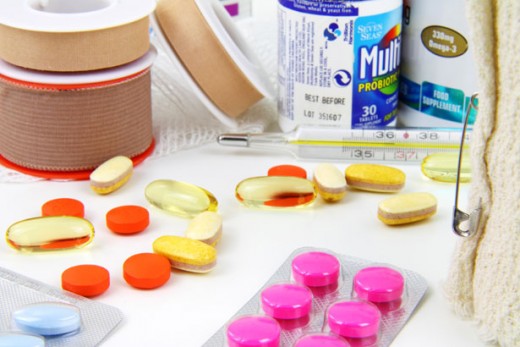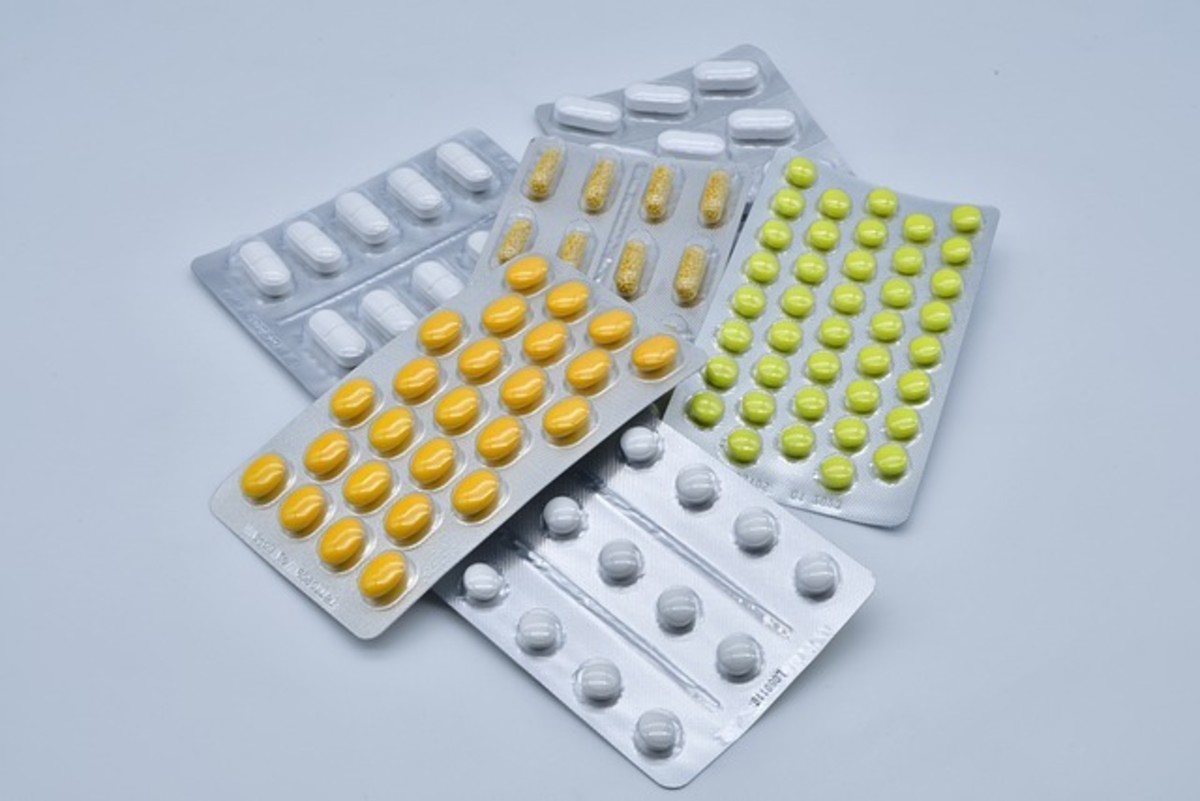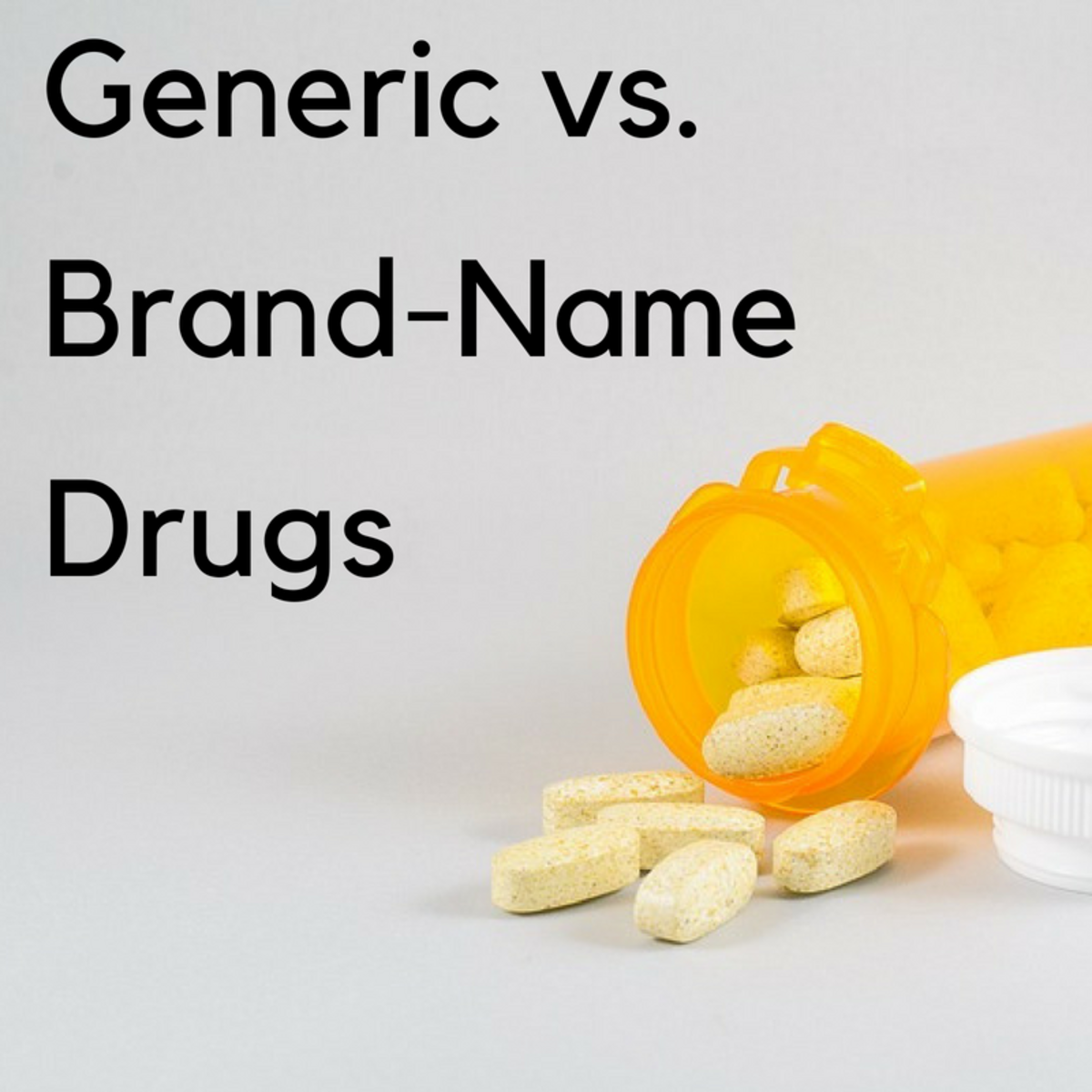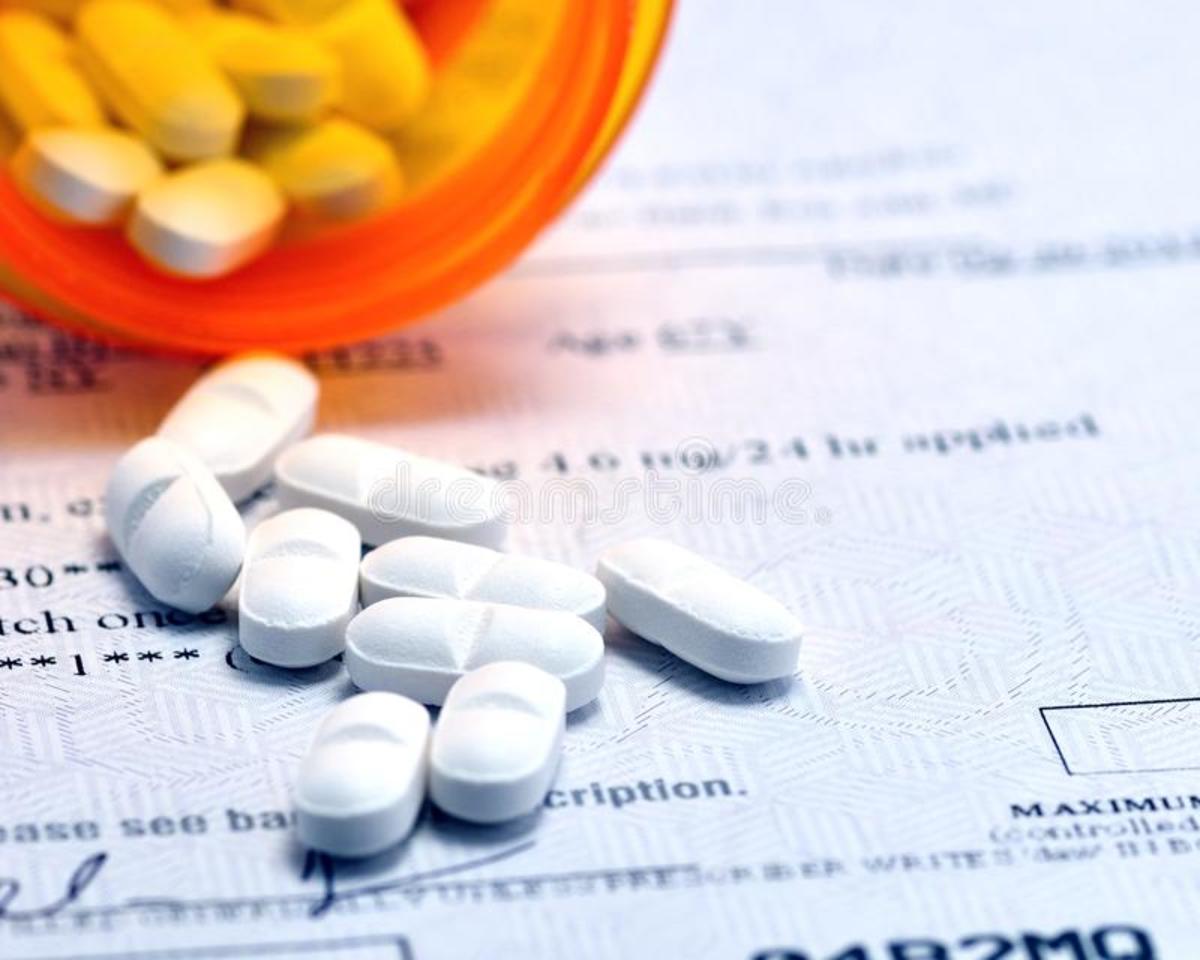How To Save Money On Prescription Medicines
HOW TO SAVE MONEY ON PRESCRIPTION MEDICATIONS
In the tougher economy these days, people are finding it harder and harder to make ends meet. Unfortunately, one of the aftershocks of a busted economy is the fact that more and more people are dropping their medications...without consulting a physician.
This is leading to more strokes, more heart attacks, seizures, and other maladies simply because people are too embarrassed to talk to their physician and tell them they simply cannot afford the high price of their medications!
What can be done about this growing problem?
First, if you take nothing else away from this article, please do NOT stop taking any prescription medications without consulting your physician right away. It could cause all kinds of repercussions especially if you are on medications like blood thinners, anti-seizure medication or diabetic medications!
Secondly, there are ways to be able to afford prescription medications without having to take out a second mortgage or sell your home.
Let's look at some of the ways to save money.

SAVING MONEY ON PRESCRIPTION DRUGS
Speak up. Tell your physician or any health care provider that you simply can't afford it BEFORE you stop taking your medicine. Think of it this way, if you have a heart attack, go into diabetic shock; you're not saving money because you'll probably end up in the hospital. You're also not saving your health. Always speak up before deciding to arbitrarily stop any medication prescribed to you by a provider. Many medications require a tapering dose to get off them in the first place, so you could end up with many side effects by coming off certain meds too fast.
Ask about generic alternatives. If you aren't already on the generic equivalent of all of your medications, shame on your health care provider and shame on your pharmacist. There is no reason to NOT be on generic prescription medications unless of course the generic equivalents are not covered for some reason by Medicare or your insurance though this seems highly unlikely. Why would they want to pay for more expensive brand names? Generic is always cheaper.
Check out Consumer Reports Best Buy Drugs. Even if you switch to a generic instead of a brand name, it may be that switching to an alternative medication may be an even bigger savings. If a different medication does the same thing and it's cheaper, or you have to take half as much dosage thus saving money, why not? This again is something that your doctor can help you with but you can also do the research yourself on the Internet. Type in for instance "drugs to treat restless leg syndrome " and you'll find a list of what drugs treat it complete with generic and name brand drugs. Then research with your pharmacist or on line which drugs are the cheapest (and might have less side effects too).
Get to know your pharmacist really, really well. If you consistently buy your medicines at the same pharmacy, feel free to talk over any and all medication prescriptions with him or her. They are in a great position to help you decide which drugs are available and which are at the cheapest per pill price. They can also advise you about interactions between drugs. This should be checked regularly by your pharmacist and your treating physicians. Sometimes you can be taking several medications that actually cause another problem to occur and by changing a medication or eliminating a medication, you can end up not having to take the third medicine! The problem with taking multiple medications is that they have a tendency to bounce off each other and cause more problems. It's very important to know your meds yourself and know all their potential side effects and even interactions with other drugs. It could end up saving your life!
Ask about mail order medications. Sometimes it's not possible to do....for instance you need something right now for a migraine headache. Obviously by the time you got the prescription in the mail, you'd be in agony. Or if you need to take an antibiotic. But for regular refillable medications, you can save a bundle on mail order medications.
Look into prescription assistance programs. Check out Consumer Reports for advice on finding appropriate prescription assistance programs in your specific area.

HOW TO SAVE MONEY ON PRESCRIPTION DRUGS
Samples are great but....they don't generally give samples for older prescription drugs so what happens? You end up being treated with a drug that is new on the market and costs a fortune. The downside is if you feel better taking it, now you're in line to be paying a fortune Four month samples of a medication are great in the short term but again, check out the price of these newer medications and you may have a heart attack without stopping your medications!
Newer is not always better. Drugs that you see on TV spell out higher prices. If you're seeing a commercial for a drug on TV, they're advertising it because it's super expensive. They're not going to advertise acetaminophen for pain relief when you can buy that generically over-the-counter for a few dollars. Drug companies have millions of dollars obviously to spend on advertising but that money has to come from somewhere. Tag - we're it! Buying any drug that is currently in the advertising loop is going to set you way back.....usually even after your insurance or Medicare pays its portion. A prescription for Cymbalta for instance on a premium insurance plan for 20 mg tablets (which is the absolute rock bottom dose) costs $50 per month in addition to what the insurance pays. So if you need to be on this medication, you just increased your monthly bills by $50. What if the doctor increases the dose? Now you're talking even more of an increase. You can always check out the generic at other pharmacies, but sometimes it takes a while for these "new and improved" drugs to show up as generics or to be that much of a savings at the stores. Truly, the pharmaceutical industry is a wonder, but it's also a rip!
Splitting pills or cutting doses to save money. You should not split pills or dosages to save money. You should only do so after consulting your physician. There are ways to split pills and there are ways not to split pills (see below) Splitting pills by hand can be a dosage mistake that you don't want to happen. Splitting pills should be done in such a way to ensure an even dosage in each and every pill. Again, arbitrarily cutting a dosage can result in serious side effects or reactions.
Doubling up. Having your health care
provider write a prescription for 20 mg tablets instead of 10 mg tablets of a medication CAN save you money. It costs less to handle it once is the reasoning rather than twice. Some people also have their medications increased to save money.....instead of 10 mg tablets, the doctor writes the prescription for 20 mg tablets and the patient splits them. This is okay to do as long as you use a PROPER PILL SPLITTER . here are pill splitters
that cost only a few dollars; you can purchase them at most grocery and drug
stores. You also need to be aware that some pills can't be split (like capsules). See Consumer Reports pill splitting information site. Moreover, filling the prescription for 100
tablets of 20 mg will probably not be that much more than filling the
prescription for 100 tablets of 10 mg.
However, if you have 10 mg tablets and need to take 20 mg of
the prescription (so take 2 pills instead of 1) you're going to go through the
prescription faster and it will cost more in the long run. In that case, it's better to have 1 pill of
the 20 mg rather than taking 2 of the 10 mg.
Or you ask for 40 mg and split those in half. It's all about processing so figure out which method saves you the most money.
Check to see that you're not getting burned on your copay. If you have an insurance plan that makes you pay $15 for each drug you get at the pharmacy, but the drug only costs $10 to fill......they pocket the $5 for it. This doesn't make sense! The way to avoid this is to check how much the medicine actually costs. Then if it's less than the copay, ask the insurance company and the pharmacy to let you pay the medication cost. Why would you want to pay $15 for a prescription that only cost $7? Go a step further then and ask the insurance company and the pharmacy to never require a copay if the drug is less than the copay would be.
Know what tier your drugs are in. Drugs come in 4 different tiers and the tiers determine the cost of them. Tier 1 is the cheapest and Tier 3 and 4 the highest price you can pay for a medication. Usually there are alternative drugs that fall into Tier 1 or Tier 2 that can treat your medical problem without costing you an arm and a leg. So if they prescribed a Tier 4 drug for your fibromyalgia (Cymbalta which is plastered all over TV), ask what Tier 1 and Tier 2 drugs can treat it just as well. Ask your doctor, your health care provider or even your insurance company what tier all your drugs fall into and then ask if there's a way that they can reduce the tier - and reduce your tears!
Price compare. Even with pharmacies, it pays to shop around. If you like getting your medicines through a bricks and mortar pharmacy, get the best price possible by calling around town and getting a price quote on all your medicines. Also don't forget about $4 drug programs offered at Walmart, Target and other stores. These only cover certain drugs but again, if you drop a tier and one of your drugs is covered now on that plan, it's money in the bank or in your pocket.
Get a drug discount card. Check these out on the Internet and then check to see about the coverage on the specific medications you take. It doesn't pay to have the card if the medications you take aren't covered or your pharmacy doesn't participate with that drug discount card.

TRIMMING DOWN THE HIGH COST OF MEDICATIONS
Whatever ways you can cut down on the high cost of medication, do it. It's a travesty in this country and around the world to see people going without food and without needed medications all because of the high cost of everything.
They say that inflation hasn't risen that much but you couldn't prove it by the cost of prescription medications!
Do whatever you can to reduce your out-of-pocket costs but talk to your physician, your pharmacists and even your insurance company about ways to save more money.
Always do what you can to save money and do your research. Then don't be swayed by people telling you this is the ONLY medicine for you to take. There are almost always not one but several alternatives.
These are great ways to get out of the revolving door of paying top price for your prescription medications.
Most of all, don't just stop taking your medicines!
Do what you can to find an alternative, but have a care for your health and get advice before you stop any medications.

More Tips on Saving Money on Prescription Drugs
- 7 More Ways to Save Thousands on Prescription Drugs
Okay, due to the great reception that the first 10 tips received, I have worked hard and dug deeper to come up with 7 more very useful strategies to save you or a loved one potentially thousands of dollars... - Saving money on your Prescription Drugs
Let's face it, in today's economy who does not or who would not like to save money on their prescription drugs. We are not only in a tough economy, but the outlook for the present recession that we are in,... - 10 Ways to Save Money on Lipitor!
Lipitor (also known as Atorvastatin) belongs to a family of prescription medications which assist in lowering your blood cholesterol levels (we sometimes call them - How To Save Money On Prescription Drugs
If you are looking for a free way to save up to 85% on your prescription drugs, then how about a free card that you can print from home and use it on any pharmacy you like in the United States. There are... - 11 Ways To Save Money On Prescription Drugs
The high cost of prescription drugs makes it tempting to purchase medicine from unsafe sources. Luckily, you can save on prescription medicine while sourcing it from reputable and legal means. Here are 12... - Save Money on Prescription Medications
As the cost of living steadily increases, many people struggle to pay for their prescription drugs. Even with health insurance, prescription costs can be a huge burden. Whether you have insurance or not, it is... - Saving Money on Prescription Medications
Prescription medication can be costly. Unexpected prescriptions, as in the case of sudden illness, can put a big wrench in your budget, but sometimes it is the routine, daily medicines that mess up your...









